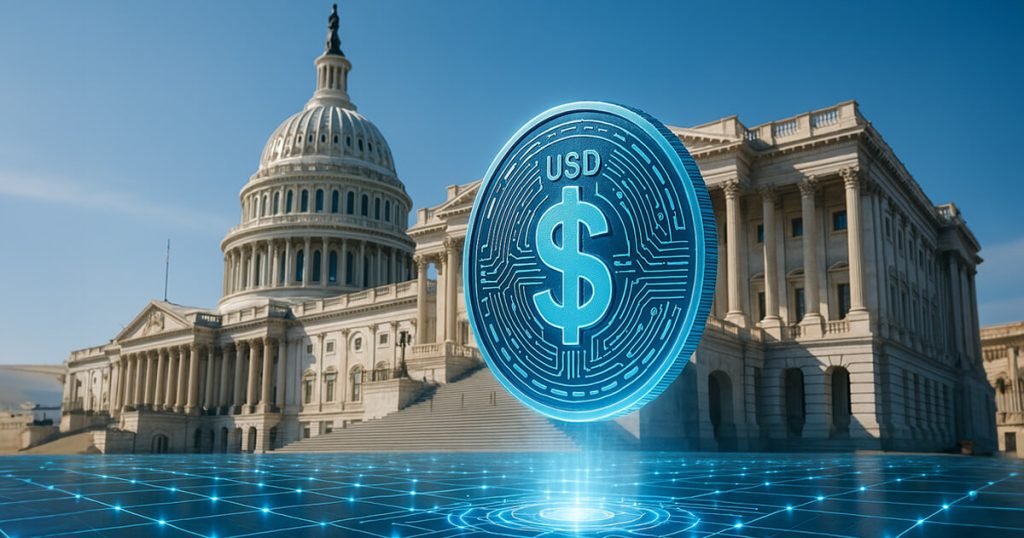US Lawmakers Push for a National Stablecoin Regulatory Framework with the STABLE Act
As the world of cryptocurrency evolves, US lawmakers are making strides toward establishing a national regulatory framework specifically for stablecoins. The House Financial Services Committee has recently advanced the STABLE Act of 2025 (H.R. 2392), a significant piece of legislation aimed at outlining clear regulatory standards for dollar-pegged stablecoins. This development marks an important step in formalizing the rules governing these digital assets, aiming to protect consumers while fostering innovation in the financial sector. The bill’s passage, with a vote of 32 members in favor and 17 against, reflects a growing recognition of the need for clarity in this burgeoning market.
The STABLE Act proposes a comprehensive set of guidelines for issuing and managing dollar-backed stablecoins. If enacted, the legislation would establish strict reserve requirements to ensure that these digital currencies are adequately backed by tangible assets, thereby instilling confidence among users. In addition, the act includes provisions for anti-money laundering measures to safeguard consumers from potential risks associated with digital currencies. Proponents of the bill argue that by creating a standardized regulatory framework, the STABLE Act will reduce uncertainty for stablecoin issuers and solidify the United States’ standing in the global digital asset landscape, fostering a more secure environment for innovation.
Despite the advancement of the STABLE Act, it has drawn sharp criticism, particularly from some Democratic lawmakers. Prior to the vote, several Democrats put forth amendments aimed at preventing government officials, including the President, from holding financial interests in ventures related to stablecoins. However, these proposals were ultimately not adopted. High-profile critics like Representative Maxine Waters, the committee’s ranking Democrat, expressed serious concerns regarding the bill, labeling it as a "dangerous precedent." Waters argued that the legislation could pave the way for benefits that favor President Donald Trump, potentially allowing a family-affiliated stablecoin to gain traction for federal transactions.
Lawmakers including Representative Nydia Velazquez echoed these apprehensions, highlighting potential conflicts of interest associated with the current administration’s ties to the cryptocurrency industry. Velazquez specifically critiqued the perceived profiteering linked to those in the Trump administration, stating, “The Trump Administration is plagued by conflicts of interest and profiteering, particularly among those connected to crypto." Her concerns underscore a broader fear among critics that the proposed legislation could be exploited for private gain at the expense of everyday investors and taxpayers.
In response to these criticisms, Republican Committee Chair French Hill defended the STABLE Act, emphasizing the bill’s capacity to encourage innovation within the financial sector. Hill stressed the necessity of maintaining the US’s leadership position in global finance by creating digital asset policies that prioritize competition and private sector development. His comments reflect a commitment to ensuring that the burgeoning digital economy can flourish while still adhering to fundamental financial principles aimed at protecting consumers.
As discussions surrounding the STABLE Act continue, the conversation highlights the complexity of regulating emerging financial technologies like stablecoins. Finding the right balance between innovation and consumer protection is essential as lawmakers navigate this uncharted territory. The ongoing debates will ultimately shape the future of digital currencies in the United States, determining how these assets can coexist within the broader financial landscape while ensuring accountability and transparency for both investors and the government.
In conclusion, the advancement of the STABLE Act represents a pivotal moment in the quest for a national regulatory framework for stablecoins in the United States. While it offers much-needed clarity and structure to a rapidly evolving marketplace, the criticisms raised underscore the need for vigilant oversight to prevent conflicts of interest and protect consumers. As lawmakers continue to deliberate on this legislation, the outcome will undoubtedly have profound implications for the future of digital currencies and the role they play in the American economy.


